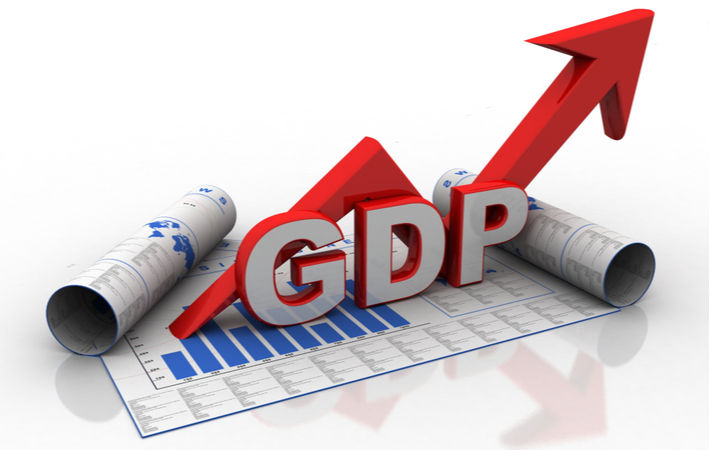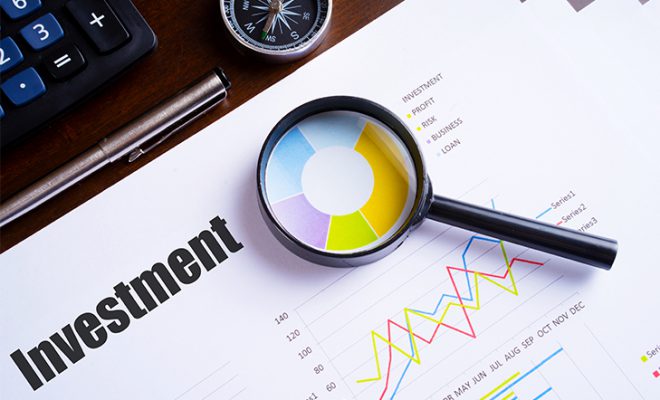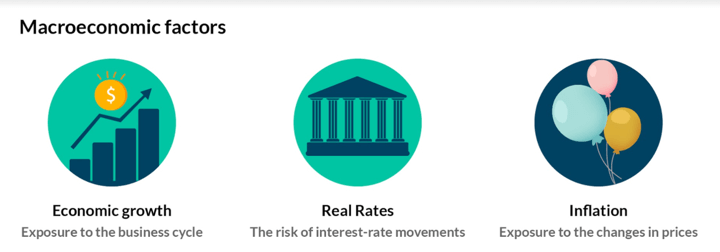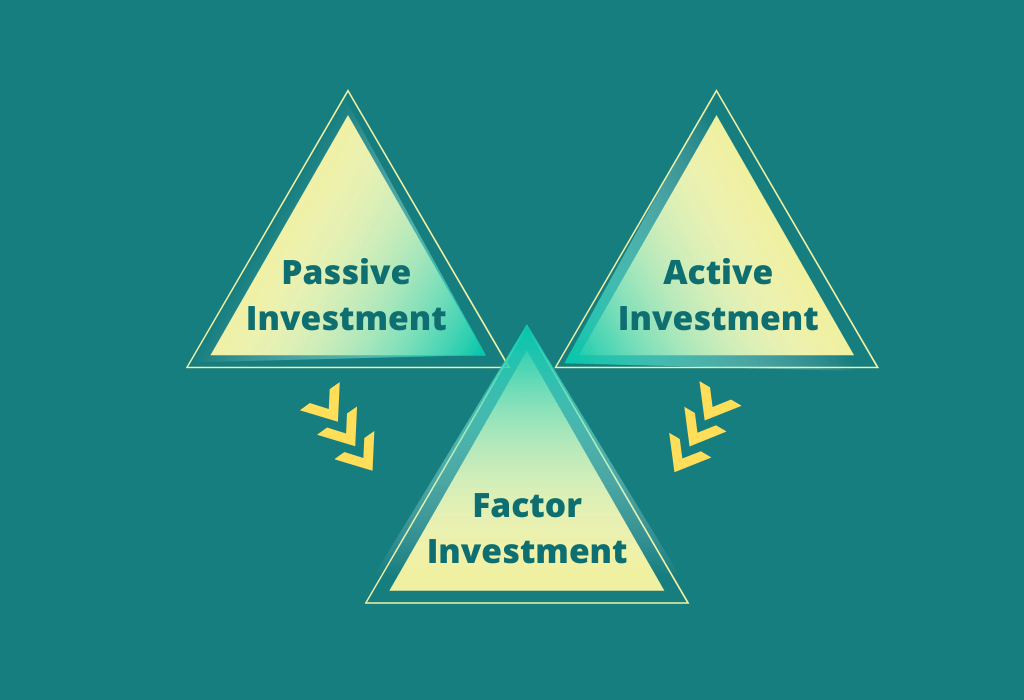Factors On Investment : Economic factors are key in shaping where investors put their money. They look at things like GDP growth and unemployment rates. Also, they consider interest rates and inflation. All of these can change how risky or successful an investment might be.
Investors use this info to make smart choices. They try to lower risks and up their chances of making money. It’s all about understanding how the economy affects their investments. This way, they can be as sure as possible about where to invest.
Key Takeaways
- Economic factors, such as GDP, employment, and interest rates, significantly impact investment decisions.
- Analyzing economic trends and indicators can help investors identify lucrative opportunities and mitigate risks.
- Political stability, trade policies, and regulatory environment also play a crucial role in shaping the investment climate.
- Investors must carefully consider the interplay of various economic factors to make well-informed investment choices.
- Understanding the impact of inflation and purchasing power is essential for achieving real investment returns.
Understanding Economic Factors
Investors need to keep up with economic indicators and economic trends. This helps them make wise investment decisions. Understanding these points can show the economy’s health and influence where people invest.
Key Economic Indicators
Important economic indicators include GDP growth, job rates, and the CPI. They tell us about an economy’s strength, spending power, and inflation. Investors study these to pick their investments wisely.
Analyzing Economic Trends
Successful investors don’t just look at single economic indicators. They also check out economic trends on a larger scale. This historical look helps them forecast market future and make smarter choices. It allows them to spot and use new opportunities.
Watching key economic indicators and economic trends gives investors deep insight. It helps them make investment decisions that match their goals and how much risk they want to take.
“Successful investing is about managing risk, not avoiding it.” – Benjamin Graham
Also Read : The Top 9 American Universities You Should Consider Studying In
Gross Domestic Product (GDP) and Investments

Gross Domestic Product (GDP) measures the total value of goods and services a country makes. It shows how well the country’s economy is doing. For investors, it’s key to look at GDP growth rates to find good investment chances.
GDP Growth Rates
Investors watch GDP growth rates to understand the economy’s health. When GDP grows fast, it suggests a strong economy. This can mean more spending by consumers and companies growing. Such conditions can lead to better investment returns.
Sectoral GDP Analysis
Looking at how different industries affect the GDP, or sectoral GDP analysis, is useful. It helps investors see which parts of the economy are growing. By investing in these strong sectors, they might boost their returns.
| Sector | GDP Contribution (%) | Growth Rate (%) |
|---|---|---|
| Manufacturing | 18.7 | 3.5 |
| Finance and Insurance | 7.6 | 4.2 |
| Healthcare | 8.1 | 2.9 |
| Real Estate | 13.2 | 2.7 |
The table above gives an example of sectoral GDP details, such as industry contributions and growth rates. It can guide investors to sectors that match their investment strategies and risk levels.
Understanding how GDP and investments are linked helps investors make smarter decisions. It also lets them spot new chances in the economy.
Also Read : 3 Things You Should Know About Health Insurance: Ultimate Guide
Unemployment and Investment Climate

The unemployment rate is key for understanding the economy’s health. If it’s high, it shows the economy might be struggling. This makes investors worried and less likely to invest. Yet, a low rate suggests a strong economy, which is good for investing.
High unemployment means people have less money to spend. This can cause a drop in sales for companies. As a result, businesses might not make as much money. Thus, investors might not want to put their money into these companies. Also, high unemployment can show that some business areas are not doing well. This can keep investors away from these places.
Alternatively, a low unemployment rate signals a strong economy. People spend more, and businesses grow and invest. This creates a welcoming environment for investors. They are more likely to find great opportunities that offer profits and growth.
| Indicator | Impact on Investments |
|---|---|
| High Unemployment Rate |
|
| Low Unemployment Rate |
|
To sum up, the unemployment rate is crucial for investors. They pay close attention to it. A low rate is good news, encouraging positive investment. On the other hand, a high rate hints at economic trouble and may scare investors away.
Also Read : What You Need to Know About Getting A Home Loan
Interest Rates and Investment Returns

Smart investors know that interest rates can greatly affect their decisions. Things like central bank policies and bond yields are key. They influence how much it costs to borrow money and the profits from savings and investments. By examining changes in interest rates, investors can spot chances to make more money. This helps them pick the best paths for their financial plans.
Central Bank Policies
Central banks, like the Federal Reserve in the US, make monetary policies. These policies affect interest rates. Things like the federal funds rate are important. They can change the investment climate. Investors watch for news from central banks and any policy updates closely. This is because changes can directly affect how much money they make or spend on investments.
Bond Yields and Investment Decisions
The yields on bonds also matter a lot for investors. Yields and prices of bonds move in opposite ways. So, if bond yields go up, prices go down, and the other way around. This affects how attractive bonds and other fixed-income investments are. Knowing how bond yields impact their investments helps investors choose wisely. They can work toward getting the most out of their investments.
| Interest Rate Trends | Impact on Investments |
|---|---|
| Rising Interest Rates |
|
| Declining Interest Rates |
|
Understanding interest rates, central bank policies, and bond yields is key. It helps investors make better choices and could lead to higher investment returns.
Also Read : The 5 Worst Mistakes That You Make When Selecting Health Insurance
Factors On Investment

When making investment choices, it’s crucial to look at several key aspects. Key factors on investment and factors that influence investment decisions impact whether an investment portfolio succeeds or fails.
The state of the economy comes first. Investors watch things like GDP growth, job rates, and interest rates closely. These factors can directly impact how much money an investment makes. Political stability and rules about investing are also key. They change how risky an investment might be.
Inflation matters too. If prices rise a lot, the money from an investment might not buy as much. That’s why it’s smart to pick things like land or goods that can keep up with rising prices.
- Economic indicators (GDP, unemployment, interest rates)
- Political stability and regulatory environment
- Inflation and purchasing power
- Trade policies and foreign investment barriers
- Industry-specific factors (such as competition, technology, regulations)
Knowing about the specific industry is also critical. Things like how much competition there is, new technologies, and changing rules matter a lot. By understanding these key factors on investment and factors that influence investment decisions, investors can choose better. This helps them reach their money goals easier.
“Successful investing is about managing risk, not avoiding it.” – Benjamin Graham
To make smart investment picks, look closely at every important detail. By carefully thinking about the risks and the possible gains, investors can move through the investment world with more sureness. This leads to reaching long-term financial success.
Also Read : The Best Universities in America for Freelance Professionals
Inflation and Purchasing Power

Inflation is the constant increase in the prices of goods and services. It affects how much you can buy with your money. As prices go up, the value of your money goes down. This makes it important to think about how inflation affects your investments.
Real vs Nominal Returns
It’s key to understand the difference between real and nominal returns. Nominal returns show the regular change in your investment’s value. Real returns, on the other hand, consider the impact of inflation. This gives a clearer view of your investment’s actual worth.
Adjusting nominal returns for inflation helps investors see the real purchasing power change. Knowing this difference is crucial when making investing choices. It’s about protecting your portfolio’s value against inflation.
Inflation-Hedging Investments
There are ways to protect your investments from inflation. Smart investors use inflation-hedging strategies such as:
- Real estate: Houses and land can go up in value. They also earn rental money that can beat inflation.
- Commodities: Investing in things like gold or food can raise your value as prices rise.
- Treasury Inflation-Protected Securities (TIPS): Bonds that pay more if inflation goes up, guarding your buying power.
- Equities: Stocks have historically done better than inflation, making them a good inflation fighter.
By including these strategies in your investment mix, you can safeguard your wealth. This approach helps you reach your financial milestones over time.
“Investing is the process of committing resources in the present with the expectation of receiving greater resources in the future.” – William Bernstein
Political Stability and Investment Risks

When making investment choices, investors look hard at political stability. A country with a stable government and strong laws appeals more. It’s better for businesses to grow in such places.
Government Stability
Firm political ground and clear policies matter a lot to investors. Governments with unwavering laws and upholding private rights pull in more investments. Such actions show a country is open for long-term business deals.
Corruption and Investor Confidence
Yet, corruption can shake the faith of investors and keep money away. Too much corruption and no transparency make business risky. This fear makes investors shun places with these issues.
| Indicator | Impact on Investment |
|---|---|
| Political Stability | Positively influences investment decisions, as it offers a predictable and secure environment for businesses to operate. |
| Corruption | Negatively impacts investor confidence and deters investments due to increased risks and uncertainty. |
Political stability and low corruption are key for attracting investments. Countries with stable, law-abiding governments appeal to investors. They help the places grow economically.
“Corruption is like a ball of snow, once it’s set a-rolling it must increase.”
– Charles Caleb Colton
Trade Policies and Foreign Investments

The international trade system greatly affects where businesses and investors put their money. Deals and laws about trading make a big difference in how much money moves between countries. These can either help or hurt the amount of investment moving around.
Trade Agreements and Investments
Big trade deals and investment agreements help make moving money across borders easier. They aim to do away with tariffs, cut down on paperwork, and protect investors legally. This makes it more appealing and profitable for companies to invest in new markets.
Barriers to Cross-Border Investments
But, strict trade policies and investment barriers can slow down the flow of money. If it costs a lot to do business somewhere, or the rules are too hard, companies might not go there. This limits what foreign investors can do and affects how fast economies can grow.
Investors need to understand a market’s trade rules to see the risks and gains of investing there. How trade agreements and laws work together shapes where it’s smart to invest. This is key to lasting success for foreign investments.
| Trade Policy Factors | Impact on Foreign Investments |
|---|---|
| Tariffs and trade barriers | Higher costs, reduced profitability, and deterrence of cross-border investments |
| Bilateral and multilateral trade agreements | Reduced barriers, increased market access, and greater investment opportunities |
| Investment protection laws | Improved investor confidence and security for foreign direct investments |
| Government investment incentives | Attraction of foreign capital and promotion of inbound investments |
Understanding trade policies well helps investors grab chances in the international market. It helps to make educated decisions and find new opportunities.
“Globalization and open trade have been powerful drivers of growth in developing and emerging-market economies. But deep, lasting economic progress requires stronger institutions, greater policy certainty, and more effective governance.”
– Christine Lagarde, Former Managing Director of the International Monetary Fund
Regulatory Environment and Business Climate

The rules businesses follow can help or hurt the economy. A clear set of rules makes it easier to run companies and encourages people to invest. But too many or unclear rules can scare off investors.
The laws on work and the environment matter a lot. A good legal system supports companies and helps protect their rights. It also makes sure workers and businesses are treated fairly. This fairness is key for making the economy a better place to invest in.
Labor Laws and Workforce Regulations
How companies treat their workers is carefully controlled by law. This includes things like how much they must pay, benefits, and health and safety rules. Investors look closely at these laws to see how they might affect profits.
Environmental Regulations and Sustainability
Rules on the environment can change how companies work. Investors like companies that act responsibly towards the planet and follow these rules. They see this as a good sign for future success.
Legal Frameworks and Contract Enforcement
A strong and fair legal system is very important for investors. They want to know their business agreements will be kept and that any problems can be solved fairly. A good legal system helps keep the business world honest and encourages more investment.
A lot of things outside just laws can attract or turn away investors. But a good mix of supportive rules can really help a country’s economy grow. These rules encourage companies to do better and bring in more money. This helps everyone by making the region stronger economically.
| Regulatory Factor | Impact on Business Climate |
|---|---|
| Labor Laws | Influence operating costs and workforce management |
| Environmental Regulations | Affect operational practices and sustainability requirements |
| Legal Frameworks | Provide certainty for contract enforcement and property rights |
“A stable and well-defined regulatory framework is crucial for attracting and retaining investments, as it provides the necessary certainty and confidence for businesses to operate and thrive.”
Also Read : Are There Tax Advantages to Investing in Public Investment Funds?
Conclusion
Economic factors are very important when deciding where to invest money. Smart investors look at things like GDP growth, interest rates, inflation, and how stable the government is. They do this to find the best chances and lower the risks. Knowing about these factors helps investors pick wisely and create strong investment plans.
It doesn’t matter if you’re an expert in finances or just starting to invest. It’s key to watch how the economy and your investment plans connect. Keeping up with GDP data and central bank decisions can show you the right path and make your investment journey smoother.
In the end, understanding economic factors is vital for good investment planning. Mixing economic study with a varied portfolio can help you succeed in the long term. This is true even when the market changes a lot or economic times get tough.
FAQs
What are the key economic factors that influence investment decisions?
Economic indicators, political stability, interest rates, and inflation matter a lot. These aspects shape how investors make their choices.
How do economic indicators like GDP and unemployment rates affect investment decisions?
GDP and unemployment rates show an economy’s health. This is key for knowing where to invest. It helps investors spot opportunities.
What role do interest rates play in investment decision-making?
Interest rates change the cost of borrowing and investment returns. Investors watch these rates for profit chances.
How does inflation impact investment returns and strategies?
Inflation decreases the value of money. This impacts how investments bring in returns. So, investors pick assets that can beat inflation.
What is the importance of political stability for investment decisions?
Political peace is crucial for investors. Places with strong rule of law tempt more investment. They make the best spots for business to grow.
How do trade policies and regulations impact foreign direct investments?
Trade rules and regulations, including labor and environmental laws, matter. They can either help or hurt investments internationally. This affects the business environment as a whole.




